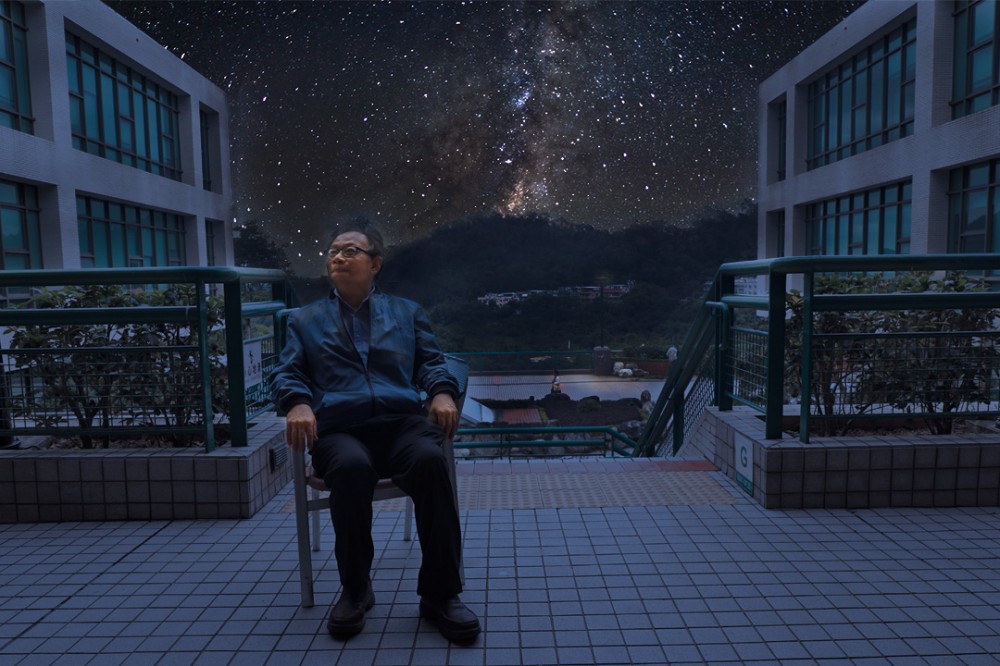Astounded by the deep mysteries of the universe

Sci-fi fans at my age are highly likely to be “Trekkies”, that is, fans of Star Trek. When I was younger, watching the show sent my imagination soaring: What would it be like living on another planet? How possible is interplanetary travel? Over the years, my teenage flights of fancy turned into a more serious quest to understand the vast universe above us. Whenever I gaze up at the sky, the twinkling stars and darkness of the night always transport my mind to faraway places and distant eras, prompting me to ask some very real questions. What is there in the universe? Is there a creator? Observing the sky also reminds me that, “compared with the vastness and agelessness of the universe, our human existence is nothing more than fleeting glimmers of light.”
But humans are an interesting species. Our finitude doesn’t stop us from probing into the infinite universe. Across our human history, generations of philosophers and scientists have made brave forays into the distant, undiscovered parts of the cosmos. They raised many philosophical inquiries and produced numerous groundbreaking discoveries about the universe. Their relentless efforts resulted in the profound and elegant theories that form the basis of today’s astronomical and basic scientific studies.
At FLASS, Dr Chan Man-ho from the Department of Science and Environmental Studies is one such scientist making strenuous efforts to unearth the mysteries of the universe. For many years, Dr Chan has focused his attention on one of the most intriguing questions about the universe: dark matter. In this issue, Dr Chan explains to our readers what dark matter is, as well as some of the most revolutionary research projects into dark matter. Dr Chan also shares his arguments as to why we should continue to spend resources on astronomical and other basic scientific research, despite these research works seemingly having no direct consequence on people’s daily lives. The astrophysicist also tells us how his many years of study and research on the universe continue to inspire him.
Our insatiable appetite for knowledge takes us on scientific journeys to explore outer space. Another area we continue to push the boundaries of is artificial intelligence. If the boundless and timeless universe humbles us, the recent achievements in generative AI have sparked excitement, turmoil, fear and worry among us. Professor Stephen Chiu Wing-kai, Associate Dean (International Engagement) from the Department of Social Sciences, and Dr Henry So Chi-fuk from the Department of Mathematics and Information Technology have observed how technological developments have impacted the education sector over the years. In this issue, they give their thoughts on how generative AI can transform learning and teaching, and what educators should do in the face of these changes.
If science seeks to understand the physical world, music leads us to explore our inner world. In March, the EdUHK Music Alumni Association — mostly made up of graduates from the Department of Cultural and Creative Arts — held its first-ever gala concert. At the concert, music students and teachers across different generations gathered and recalled their fond memories at the University. The concert ended on a perfect note when all performers, conductors, singers and audience members alike sang “Shalom to You, My Friends”. Their beautiful voices, resounding across the performance hall, touched the deepest parts of many hearts.
There are a few people’s stories that I want to highlight in this issue. Dr Kirk Ma Yiu-on, a music major of this University when it was still called the Hong Kong Institute of Education, learnt how to conduct and sing during his university studies 20 years ago. He is forever thankful to his alma mater, for his teachers not only taught him knowledge in music, but ignited his passion for it.
Dr Kell Cheng Hiu-fai from the Department of Mathematics and Information Technology is a professional mathematician. Dr Cheng explains that to learn mathematics effectively, one needs to learn fundamental concepts in a systematic manner, step by step. He uses the same approach when playing football and golf.
Statistics — more specifically speaking, time-series analysis — has occupied my whole academic life. Academic research in this field has challenged my intellectual ability, and also built my character and blessed me with fond memories to cherish for a lifetime. Before submitting my PhD thesis, my supervisor told me to bite the bullet and try solving a problem about long memory time series in one month. At that time, only a handful of people had heard of the problem. I accepted the challenge, and triumphed. Four decades have passed, but I still remember my excitement when I discovered the solution. In this issue, I will tell you more about my academic journey and share with you my response to the “Publish or Perish” aphorism.

I don’t watch Star Trek anymore, and I seldom think about interplanetary wars or conquests in space nowadays. But I still feel astounded by the vast universe, filled with galaxies, stars, and planets. The deep mysteries of the universe humble me. I am equally amazed by humanity’s unquenchable thirst for the unknown. And I believe with this humility and thirst working in tandem, we will forge a path to further destinations ahead.
With spring drawing to an end, I wish you a sweet summer time ahead that is filled with broad smiles and zeal.
Professor Li Wai-keung
Dean of FLASS
30 May 2023